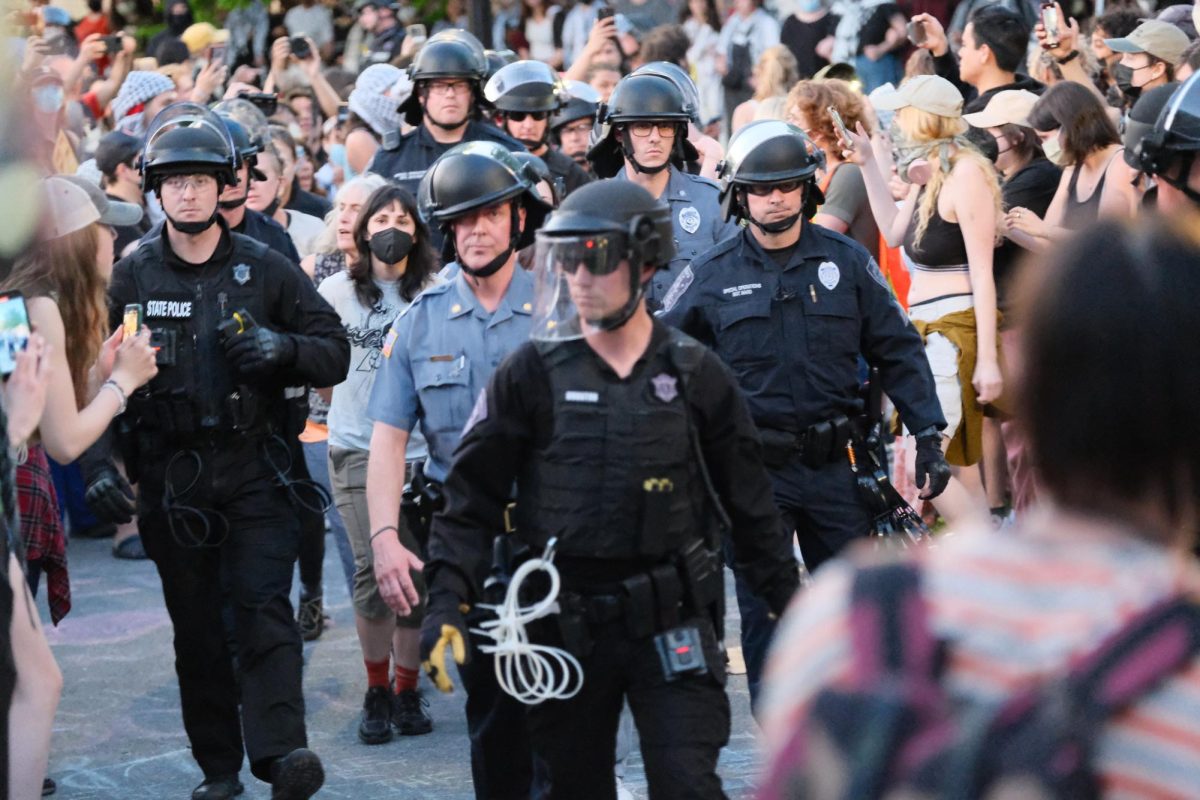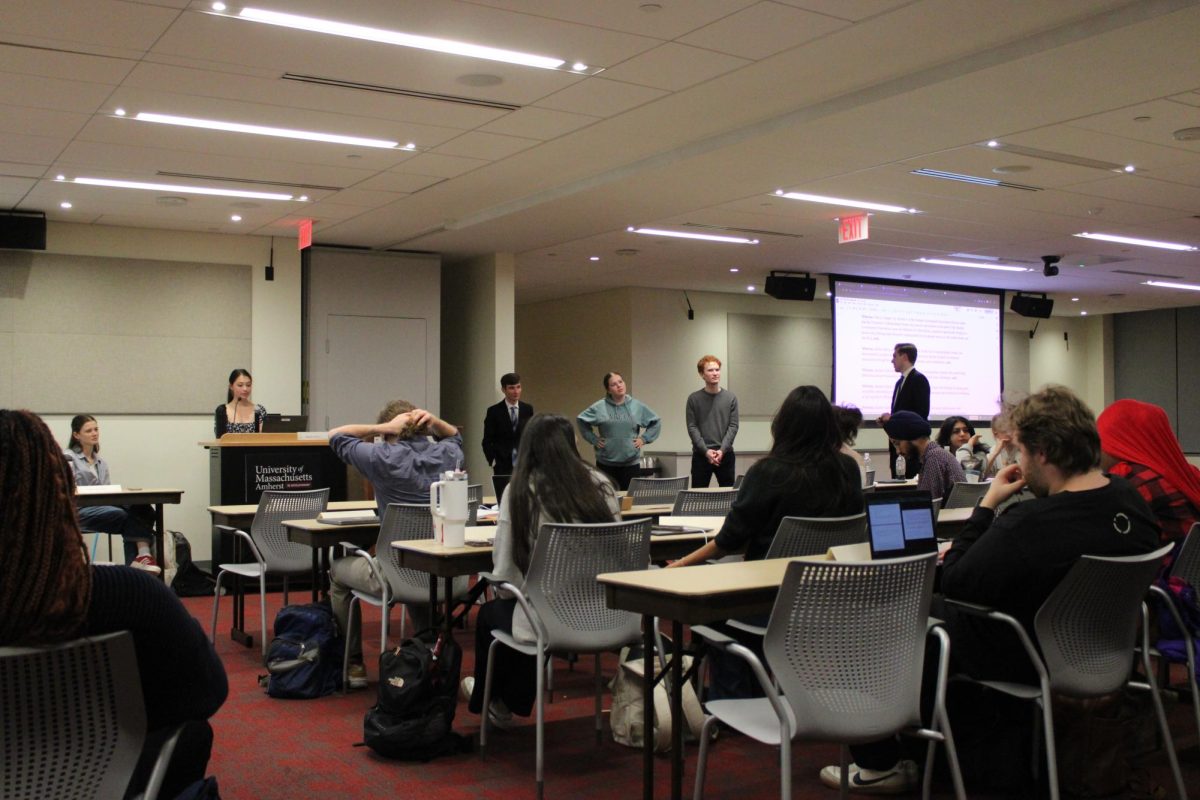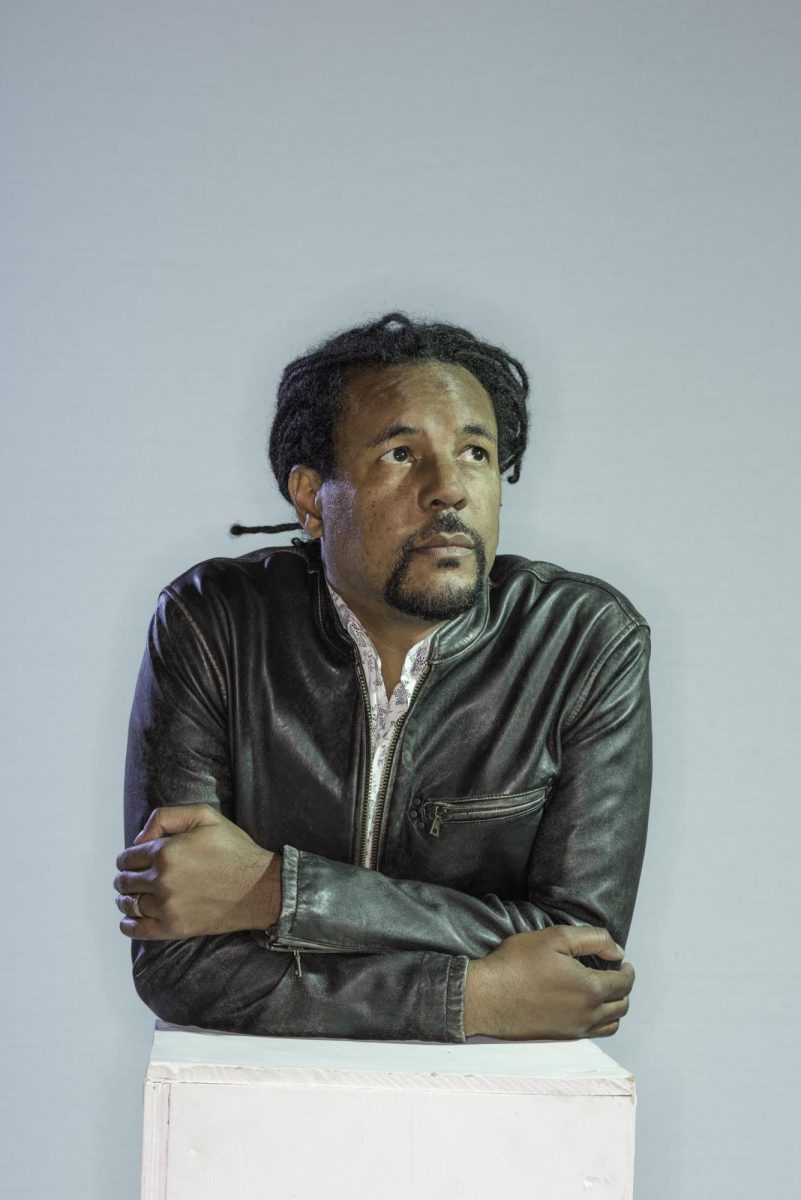
Available in Spanish and Korean.
On Monday William Spriggs, professor of economics at Howard University, spoke at the University of Massachusetts about the threats that racial, gender and income inequality pose upon democracy.
Spriggs also serves as chief economist to the American Federation of Labor and Congress of Industrial Organizations (AFL-CIO).
His lecture, entitled “All of Us or None of Us: The Political Economic Challenge on Inequality and the Threat to Our Democracy,” was held in the Gordon Hall third floor conference room. The lecture was the fourth installment of the Political Economy Research Institute (PERI) speaker series, “The Right Wing’s Assault on American Democracy: What is it? How can we defeat it?”
“All of Us or None of Us” is a reference to the “all workers or no workers” theme adopted by the Massachusetts branch of the AFL–CIO.
He denounced the racial and gendered discrepancies in the earnings gaps as a result of economic determinism or failure of economic policy, yet attributed it to a larger underlying danger amongst everyone.
“We have to address that danger itself,” Spriggs said. “We can’t dodge around it. That threat to our ability to come together is real.”
Spriggs pointed out that Americans don’t want to admit that there are racial divides that “don’t work for working people and in that sense, it’s ‘All of Us or None of Us.’” He specifically identified events occurring in America — particularly the Republican Party’s recently-passed new tax plan — as a challenge to democracy.
He went on to challenge the concept of the free market as a “rationing tool” that allocates funding based on prices in the economy. According to Spriggs, if someone has money, they have the availability to buy what they want; if they don’t have the money, they cannot. They are “rationed out of the market.”
According to Spriggs, with the “one dollar, [equals] one vote” expression, there are so many votes occurring simultaneously that no one person is able to sway the economy. However, he countered his own point that, if income is highly unequal, ‘one dollar, one vote’ becomes obsolete as a result of how the market reacts.
Using a pie graph, Spriggs demonstrated how the top 20 percent of the country’s income distribution controls over half the income of the United States. He continued to say that the top 20 percent are the “economic majority. They hold most of the votes.”
He predicted that if the new tax bill becomes law, the top two percent will control over half the income of the Unites States, which in turn will give them the power to dictate the economy, as they are the only ones with the money, or the votes.
Spriggs went on to say that people need to come to an understanding regarding inequality, and admit to the economic reality of racial differences in America.
With the use of numerous graphs, Spriggs also demonstrated the disparities between employment rates of Black and white people, as well as how education and skill level are not attributing factors to why the unemployment rate of Black people is higher than that of white people.
One graph, which Spriggs titled “The Trump Effect,” showed the unemployment rate for white high school dropouts is lower than that of Black people with associate degrees. Another graph showed Black and white unemployment rates from 1972-2017, and revealed that the highest unemployment rate of white Americans over that span of time was only 10 percent.
Spriggs continued to warn that one cannot solve inequality without realizing the many issues regarding inequality, especially the unequal treatment of men and women in the workplace. He went on to say that President Trump has “turned [this] problem into an impossibility to address,” due to his status as the curernt President of the United States.
He then displayed a map of the United States, which had numerous red spots that represented the states that pose a danger to democracy. These states don’t have union density, don’t invest in K-12 education, have the highest incarceration rates in the country and do the least in aiding their citizens. Spriggs deemed these traits “elements of war on working people.”
Annie McGrew, who is interested in the UMass economics graduate program, said that the lecture helped her realize “how dire the situation is in the U.S. in terms of economic inequality, and how much we have to work to fight for more equal economic outcomes.”
UMass junior political science major Rob Sailer — who found out about the lecture on the day of — thought the lecture “was sensational.”
“Solving income inequality broadly requires solving income inequality among different demographics,” Sailer said.
Bonnie Chen can be reached at [email protected].



















John Aimo • Dec 5, 2017 at 2:50 pm
There are disparities in statistics regarding between african-americans and between other minority groups, in areas like unemployment and crime.
However the professor is making assumption based on those statistics that the cause is racism without any proof. At best, if you were going to be scientific, you would state the reason is unknown.
Also the argument of racism is misleading, because there are difference in unemployment of black people versus other racial groups like Hispanics, Asians, Indians(from India). All of those groups have higher unemployment rates than african-americans and asians and Indians have higher employment rates than white americans and salaries. So if there is racism, how do you explain this? Only black people are the victim of racism?
Also the professor is again making assumptions without proof between union membership and incarceration rates, which is absurd.
What is always ignored is the behavior and actions of the individual, nothing prevents african-americans just as nothing has pervented hispanics or indians or asians, from getting jobs; nothing forces them to commit crimes. The reason there is differences in these statistics is the actions and behaviors of the individuals within those groups.
‘Inequality’ will always exist, it’s a fact of life, of nature and of society. One person, and at that,the president is not singularly responsible for these problems now can he solve them. The best thing in my opinion is to encourage individuals to take responsibility for their actions.